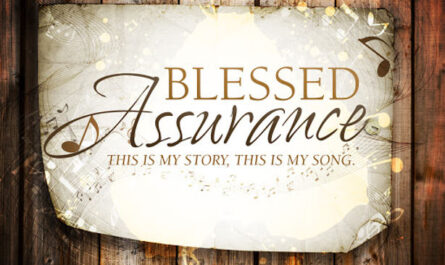There was a chorus we sung in church in the ‘90s.
“Yahweh Yahweh, Yahweh Yahweh, Yahweh Yahweh, eh Yahweh! x5”
I disliked the chorus because its repetitious nature numbed my brain and tongue. Then I heard a preacher ask how we would feel if someone sung us a song where they repeated our name 25 times in one chorus. Now that little song entered my banned list. Because in a world where songs give us the vocabulary to worship God, and where the theology in songs carries us through the week and often throughout our lives, we shouldn’t be singing Yahweh Yahweh times infinity.
We had 10,000 reasons to sings God’s praises. We had a God who was indescribable and unsearchable. We had been chosen before creation. We had been redeemed with the priciest blood. We had been adopted into God’s family. We were looking forward to a glorious inheritance in Christ and with Christ. Surely we could say more about this great salvation and this great God.
Scripture is full of vocabulary to describe and praise God. Consider the song by Moses, Miriam and the Israelites in Exodus 15 after escaping from the Egyptians and crossing the Red Sea. They extoled the Lord for his deliverance. They rejoiced in his strength. They sung about his nature.
“I will sing to the LORD, for he is highly exalted. The horse and its rider he has hurled into the sea. The LORD is my strength and my song; he has become my salvation. He is my God, and I will praise him, my father’s God, and I will exalt him. The LORD is a warrior; the LORD is his name.”
Yahweh times infinity wasn’t a terrible song, really. It didn’t teach error or mislead. I just felt it didn’t make much of God and of the divine opportunity of worship when believers are gathered. It was a spiritually thin song that could induce theological anorexia if that is all a congregation sung.
I’m not against repetition in a song. There is good repetition. The kind that makes words sink in as we pause and selah! The kind that makes songs easy to learn and sing. The kind that stills our souls and minds and helps us focus on God. The kind that makes lyrics come back to us decades after in the middle of the afternoon.
Then there is bad repetition — bland uncreative, like we have nothing else to say to God or about God, like we had to fill the music with words, any words; the kind that wastes a moment for worship and awe.
I have found the words of songs I mindlessly learnt as a child replaying in my head in the middle of the night, in the midst of storms, on a random Thursday morning. And while then, I chimed the words mindlessly then, now they come back with depth and conviction and warmth. That’s how powerful songs are.
Do we even have to sing?
I know some would be happy if there was no singing in church. There are too many new songs; we feel too cool or too odd to sing; we actually hate the music; the band has it all wrong; the lyrics and melody are crappy; we don’t even have the rhythm or voice to hold up a tune; and what is that crazy key the lead singer is singing?
But we should sing. We have been commanded to sing to God and to one another.
“Praise the LORD! For it is good to sing praises to our [gracious and majestic] God; Praise is becoming and appropriate.” Psalm 147:1 (Amp)
“Speak to one another with psalms, hymns and spiritual songs. Sing and make music in your heart to the Lord” Ephesians. 5:19
Bob Kauflin, director of Sovereign Grace Music, points out that the Bible contains over 400 references to singing and 50 direct commands to sing.
We sing to praise God, to thank him, to broadcast his glorious deeds, to speak of his attributes, to remember God’s doings, to pass on faith to the next generation, to revel in God’s beauty, (Psalm 51:14, Psalm 69:30, Psalm 89:1, Psalm 104:33, Psalm 63:7, Psalm 28:7).
“Come, let us sing praise to the LORD!
Let us shout praises to the Rock who saves us.
Come and worship him with songs of thanks.[a]
Let us sing happy songs of praise to him.
For the LORD is a great God,
the great King ruling over all the other “gods.”” Psalm 95:1-3
There is so much singing in heaven as revealed in Revelation we might as well get some practice in. The 24 elders and the four living creatures are even composing new music and playing on harps and John sees multitudes without count singing a mighty chorus to God and to the Lamb, and bowing in worship.
We should sing with our minds and with our spirits and our bodies (1 Cor 14:15). Our songs should tell forth God’s praises for his works to the children of men. Our songs should glorify God among the nations and to all generations. And our lives and physical bodies and countenance should echo the truths we sing, so that we are not lying through our lips.
Even Gods sings.
“For the LORD your God is living among you.
He is a mighty savior.
He will take delight in you with gladness.
With his love, he will calm all your fears.
He will rejoice over you with joyful songs.” Zephaniah 3:17 (NLT)
As we come into a worship service — distracted, wearied, on the edge of a Sunday morning tiff with our spouse, hearts hardened — music can help tune our hearts and minds to heavenly rhythms as we sing God’s praises. The music gives us words where we have none to express what we think and feel.
“Churches sing together because it helps us to see that our hearts’ praises, confessions, and resolutions are shared. We’re not alone,” writes Jonathan Leeman in his book Word-centred Church, suggesting that singing is one way of demonstrating and building corporate unity.
What should we sing?
King David in the Psalms uses beautiful language to speak about God – worthy of praise, the Rock, a safe refuge in the day of trouble, who loves, sees, hears, speaks, gives, helps, protects, remembers, restores, shields, watches.
Songs can give the church more theology on what to believe and why we believe what we believe. They can teach to lament, give thanks and confess. Through our choruses and hymns we can send the church home with more apologetics, more discipleship, more faith, more awe.
“If music is meant to help us engage emotionally with words, then most churches need a broader emotional range in the songs they sing. We need songs of reverence, awe, repentance, and grief as well as songs of joy, celebration, freedom, and confidence. The holiness of God cannot be adequately expressed in a two-minute up-tempo pop song. The jubilant triumph of Christ’s victory over sin can’t be fully communicated in a slow a cappella hymn,” writes Kauflin.
A paper advising the church on Christian worship by the Commission on Worship of the Reformed Church in America, says that our songs should not hide from our humanity. They should represent our different life situations and seasons including moments of praise, sorrow, thanksgiving, confession, lament, intercession and dedication? Do the songs allow us to engage our emotions? Do they evoke and provoke our joys, griefs, longings, hopes and sorrows?
“A congregation which sings only “upbeat” praise choruses and hymns, for example, will have a diminished and restricted understanding of prayer,” suggests the paper.
“Consider the Psalm’s balance of joy and sorrow, confession and lament, exaltation and thanksgiving. Do we know how to lament in our churches through music? Or confess?”
This article is, therefore, a challenge to song writers, music producers, worship leaders and singers to pay careful attention to the songs they are feeding the flock of Christ with. It is an encouragement to diligence, craftsmanship, soundness and richness in what we write, sing and produce and queue for the church to sing.
We could ask ourselves: Do our songs make much of God? In Africa in particular, we have been accused of creating songs that make common the holy, trivialise the eternal and make a mockery of God’s wrath and love at the behest of creativity.
Do the songs advance the cause of Christ? Do they redeem the days or they has us singing in circles, saying nothing in particular?
Is what we are singing true or does the song introduce error? Can it be backed by scripture? Is it biblically faithful?
Pastor, singer and songwriter Matt Boswell in an article for 9Marks.org notes that songs are a powerful means of teaching the church.
“Songs are sermons,” he says. “They don’t work like homiletical exegesis, but they articulate, exegete, and pronounce biblical truths. Our hymns teach and shape the way people view God, man, Christ, and how we are to live in light of the gospel.”
Therefore, our songs should be built on, shaped by and saturated in the Word of God. Paul instructed the Colossians to let the word of Christ dwell in them richly as they teach and admonish one another in all wisdom; singing psalms, hymns, and spiritual songs to God with gratitude in their hearts. (Col. 3: 16-17).
Matt Merker, a director of creative resources and training for Getty Music, in an article for the Gospel Coalition writes: “Our doctrine finds expression in our corporate worship. Likewise, our gathered praise shapes our theology.”
“Why set theology to music?” queries Matt Merker. “Because singing truth is a way to write it on our hearts.”
Leeman adds: “Scripture must be invited to come make a house in the church’s music. Singing god’s word is how a congregation tunes its heart together across the whole range of biblically driven affections. There is something wonderful about the heart-reprogramming work of music is that it easily travels home with us, echoing out of the church into our lives together.”
“Whether those songs were written in the 16th century or today, they should echo Scripture. If there is any place where God’s Word should literally reverberate, it should reverberate in the church’s songs. Remember, Scripture alone gives life. Therefore, a church’s songs should contain nothing more than the words, paraphrases, or ideas of Scripture.”
This is because the theology in our songs follows us home throughout the week.
“If a sermon were to contain error, I could explain it to my children after church. If a song contains error, you’ve gotten my children to sing it aloud. That’s no small thing,” tweeted Aureliano Buendia. While we may forget what the sermon said, we will most likely be humming a hymn or chorus we heard in church or on the radio as we go about our day’s activities.
“Just think of how many songs you know from heart versus how many verses of Scripture you can quote. Music makes words easier to remember, and thus theology sung is more memorable and influential than theology taught,” says author Jason Dulle.
Finally, as the paper by the Commission on Worship suggests, our songs should have sufficient historical, cultural and generational breadth and should encourage corporate worship in style, key, expression of faith and composition.
“Our faith is not novel. Our trials and victories are not new. Does our congregational singing express belief in the communion of saints? Are all the saints present encouraged to join in singing, and do our songs also express our belief that we sing with saints throughout the ages and around the world? Do the hymns and songs include contributions from other cultures, languages and eras? Are songs included which allow for the full participation of children? For those beginning the journey of faith as well as for more mature Christians? Is the style appropriate for the particular congregation? Does the music allow the gathered church to express its faith together or it only reflects the individual and private expression of faith? Can all believers, male and female, young and old, feel included by the language of the songs?” the paper queries.
What should we not sing?
A side warning is that there are many ‘gospels’ out there and not all of them preach Christ. Paul warned Timothy that there might be others who teach a different gospel. We should be wary of spiritually androgynous songs that are directed to a mysterious ‘you’ without being clear that these are songs to Yahweh or to Jesus Christ. While I’d wish to be optimistic and offer the benefit of doubt to the songwriter, I’m aware that Satan masquerades as an angel of light and will sell imitation that looks like the real.
Before we sing to a mysterious ‘you’ let’s be clear in our words and in our fruit that we are singing to the one true God. If a song can be sung by any other religion with no change of words, then we have a problem.
One user, @jdleggcan, on Twitter/X wrote recently: “Here’s a song I don’t like, and dislike more every time it’s sung. Today I figured out why. It mentions neither Jesus nor God by name. Just a lot of self-gratifying hot air addressed to an undefined “you”. My heart is moved to worship when we sing to God and Jesus.”
We worship a great King. We have received a great salvation. We are part of God’s big family. As Boswell suggests, may we have a gospel-centered framework in church music — centered on God, Christ and our response to God’s revelation through songs of consecration and repentance, faith and praise. And may we respond with joy, with thankfulness, with confidence and with new life as we await to sing the song of the redeemed in Revelation 5:9-10 saying:
“You are worthy to take the scroll
and to open its seals,
because you were slain,
and with your blood you purchased for God
persons from every tribe and language and people and nation.
You have made them to be a kingdom and priests to serve our God,
and they will reign on the earth.”
.



